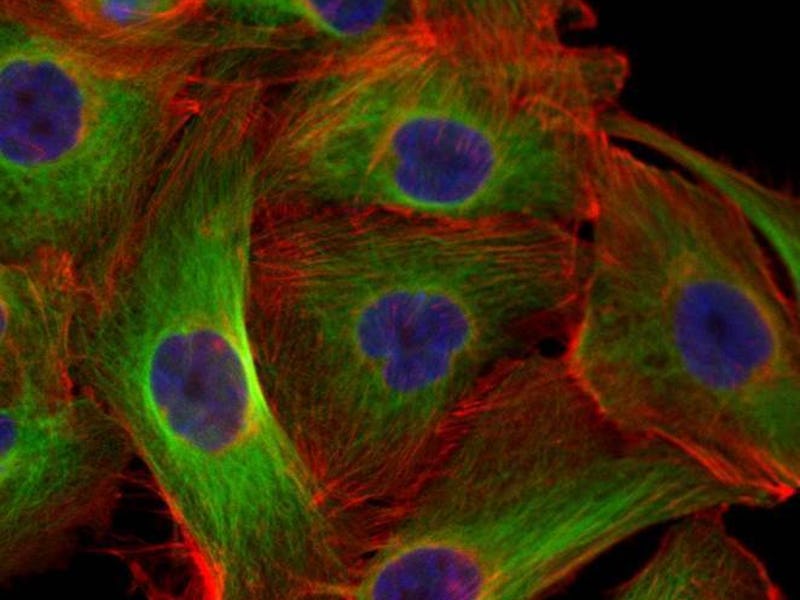More Evidence for How a Trip to Mars Will Wreck the Human Body

With Congress passing a bill authorizing NASA to prioritize sending humans to Mars, we’re likely to see some deep space travel in the next two decades. However, we need to consider how to protect astronauts’ health, since extended space missions increase the risk of developing cancer.
In a study published in the journal Leukemia, researchers at the Wake Forest Institute for Regenerative Medicine and colleagues further investigated the effects of exposing astronauts to radiation levels present in outer space, and found a greatly increased risk of developing leukemia. This poses as a threat to astronauts, since there currently isn’t a way of treating leukemia on board.
“That would be physically troubling from the standpoint of astronauts,” Christopher Porada, Ph.D., associate professor of regenerative medicine and senior researcher on the project, tells Inverse. “These were the first findings to suggest space radiation may have the possibility of inducing leukemia. We are trying to find out what the risk may be.”
Researchers used mice transplanted with healthy human stem cells from donors between ages 30 and 55 to study the health risks from space radiation. They found that exposure to these types of radiation over long periods of time causes mutations in certain genes, and these mice ended up developing T-cell acute lymphoblastic leukemia.
These mutations would reduce the human hematopoietic stem cells’ ability to make mature blood cells, which are crucial to transporting oxygen and fighting infections.
A round-trip mission to Mars would take three years, and extended exposure would increase the likelihood of leukemia. What’s more, radiation isn’t the only threat to astronauts — microgravity conditions also affect astronauts’ immune systems. That along with radiation raise the risk of immune-dysfunction and cancer.
Previously, scientists had found that the Apollo astronauts are dying from cardiovascular risks four to five times the rate of their counterparts, likely due to deep space radiation. Cosmic radiation can also impair the brain, and it’s a major obstacle that’s preventing us from embarking on longer space missions.
To prepare for deep space missions, scientists must work to estimate the risks from space radiation and identify ways to prevent its effects. Right now, the research team is working to quantify how dangerous the risk of leukemia is, since the human cells they collected were only a small sample. NASA is also working on a galactic cosmic ray simulator to further test the effects of radiation.
Porada’s team is currently testing a dietary supplement for its ability to protect astronauts from radiation effects. The researchers have tested an agent and found that if they administer the agent to the cells before, during and after radiation exposure, it reverses the effects of space radiation by 50 to 70 percent. This is still in the works though.
“We’re going to quantify the risk and find if there’s some way to prevent and mitigate the risk,” Porada says. “We’ll see if there are counter measures that can be given to the astronauts as a dietary supplement to shield their systems from the radiation they’re exposed to.”